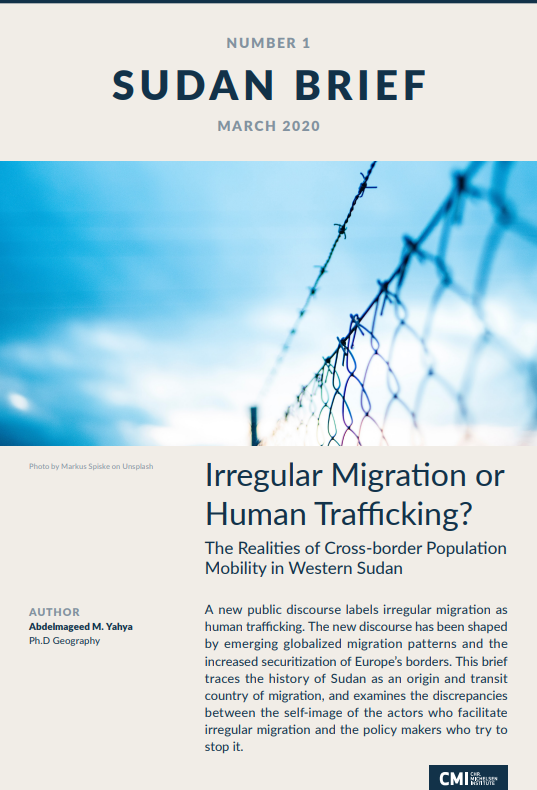
This briefing provides an overview of the realities of cross-border population mobility in Western Sudan. It discusses Sudan’s history as a country of origin and transit for irregular migrants, as well as the emerging globalized migration patterns that have shaped a new public discourse labelling irregular migration as human trafficking. The document also explores the discrepancies between the self-image of actors who facilitate irregular migration and policy makers who try to stop it, and the policy implications of these discrepancies. It highlights the Khartoum process, which focuses on preventing and fighting migrant smuggling and human trafficking, and the EU Emergency Trust Fund, which offers aid to countries along the migration route from the Horn of Africa to combat illegal migration and smuggling to Europe. The document also touches on the long and complicated history of Sumbuk (cross-border trade or local smuggling) in Sudan, which was only outlawed relatively recently, and the collusion between the Sudanese military and human traffickers to extort money from migrants.
This briefing was originally published by the Christen Michelsen Institute (CMI).